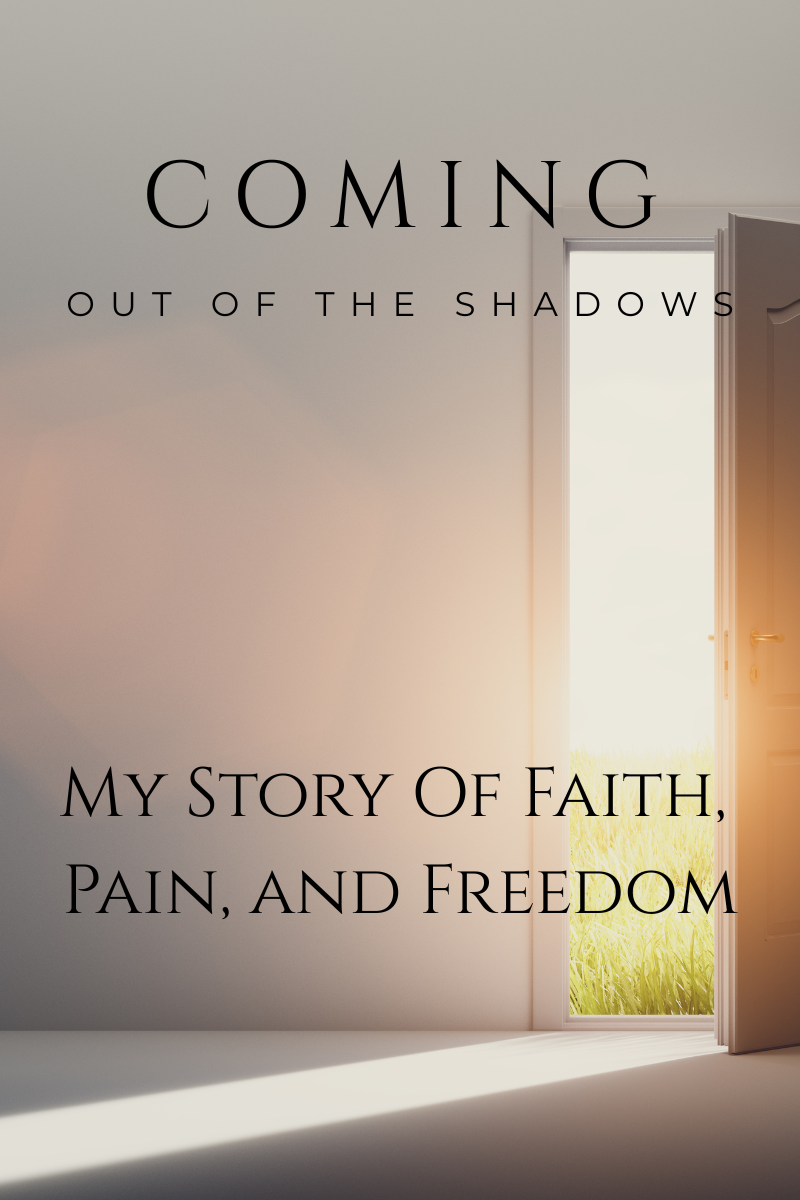My coming out story isn’t like everyone else’s—but I know, deep down, it’s one that many will relate to. It’s not wrapped in rainbows or filled with celebration. It’s not a neatly tied narrative with instant relief and acceptance. It’s a story of deep-rooted fear, spiritual trauma, internal battles, and eventually, freedom.
I grew up in a strict Independent Fundamental Baptist (IFB) church—a church that, in hindsight, operated more like a cult than a community. Everything was tightly controlled. What we wore, what we watched, who we spoke to, how we worshipped, what Bible version we read—it was all dictated by the leadership. Any deviation was seen not just as rebellion against the church, but against God Himself.
This church didn’t just preach salvation—they claimed a monopoly on it. Anyone outside of their narrow doctrine was either deceived or damned. Catholics, Muslims, atheists, even Christians from other denominations were considered lost. And the LGBTQ+ community? We were spoken about with disgust and condemnation, if we were acknowledged at all.
I was just a child when I started realizing I was different. By the age of seven, I knew I didn’t feel the way other boys were supposed to feel. But I had no idea how to name those feelings—only that they were wrong. At least, that’s what I’d been taught.
So I buried it.
I prayed. I cried. I begged God night after night to “fix” me. I believed I was broken, sinful, unworthy of love or heaven. Every time I had a thought or feeling that didn’t align with the rigid doctrine I’d been raised on, I spiraled into guilt and shame. For 21 years, I lived in hiding—constantly trying to change myself, constantly trying to be “acceptable” in the eyes of my church and my God.
But you can only suppress your true self for so long.
At 28 years old, everything came crashing down. Years of repression, anxiety, spiritual abuse, and self-loathing led to a complete mental breakdown. I was admitted to a psychiatric facility. And ironically, that place—so often viewed as a last resort or a sign of failure—became the place where I started to rise.
It was in that silence, away from the noise of religion and shame, that I began to hear myself again. I realized that the silence and fear I was living in were more harmful than anything that could ever come from telling the truth.
By then, my family had already left the cult-like IFB church, though we were still attending a more “traditional” Baptist church. The language was a little softer, but the beliefs were mostly unchanged. Fear still lingered—just dressed in nicer clothes.
Coming out was not an event—it was a process. I started with my friends, and thankfully, they showed me grace and support when I needed it most. Some were surprised. Some weren’t. But not one of them turned their back on me.
After that, I slowly opened up to my family. It wasn’t easy. There were a lot of long pauses, a lot of careful words, and in some cases, emotional distance. But I also found unexpected allies—people who were willing to walk with me even if they didn’t fully understand.
Eventually, I decided to reach out to my pastor. I wanted to be honest. I was tired of the half-truths and the fear of being found out. I wrote an email explaining who I was and where I stood.
His response?
“You’re still welcome to attend church. But you won’t be able to serve in any ministry, because of the choices you’re making.”
That hit me hard—not because I needed a platform, but because it was yet another confirmation that I was only welcome if I stayed silent. I could sit in the pews, but not belong. I could worship quietly, but not lead, not serve, not be seen as whole.
That kind of “tolerance” is just a softer form of rejection.
The healing didn’t come overnight. It never does. But piece by piece, I started rebuilding. Therapy gave me words for what I’d been through. Support groups showed me I wasn’t alone. Books, journaling, and long, hard conversations helped me unpack the years of spiritual trauma.
Most importantly, I learned to forgive.
I forgave the pastors who taught fear instead of love.
I forgave the church members who gossiped and judged.
I forgave the people who distanced themselves from me out of fear, confusion, or ignorance.
And perhaps most powerfully—I forgave myself.
I forgave myself for believing I was broken.
For hiding for so long.
For all the self-hate I had internalized over the years.
Forgiveness didn’t erase the pain, but it took the power away from it. It made room for healing, for hope, and for freedom.
And now, sharing my story has become a part of that healing. Every time I tell it, I take back another piece of what I lost. I stand a little taller. Breathe a little easier. Live a little more honestly.
If you’re reading this and you’re still stuck in the shadows, please know this: You are not alone. You are not wrong for being who you are. You are not broken. You are not disqualified from love, from purpose, or from faith.
The pain might still be there. Sometimes mine still lingers. But it no longer controls me. It’s no longer a prison. It’s a scar now—one that reminds me not of the damage, but of the strength it took to heal.
Living your truth won’t always be easy—but it will always be worth it.
You deserve the kind of peace that only comes from being fully, unapologetically you.
And you are never as alone as you think.
